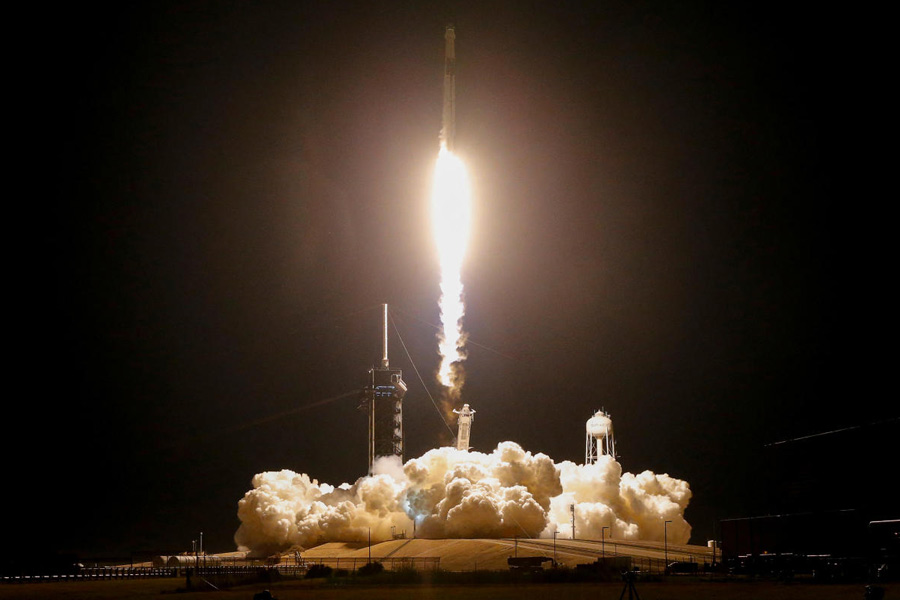India’s space exploration journey reflects geopolitical prowess, technological breakthroughs and security-oriented diplomacy. The Indian space programme received international attention after the 2008 launch of Chandrayaan-1. The recent successes of Chandrayaan-3 and Aditya-L1 solidified India’s capacity to develop critical technologies. India’s next focus is on ‘Gaganyaan’, its first human space mission, which would strengthen its geopolitical position as a nation with one of the fastest-growing space programmes in the world.
Socio-economic agendas and developmental challenges shaped India’s space exploration in the 1960s. In January 1985, in the backdrop of the arms race between the US and the USSR, India even sponsored a declaration of a non-aligned group opposing an arms race in outer space and nuclear testing. From advocating for ‘weapons-free outer space’ in the early 2000s to becoming the fourth country after the US, Russia, and China to successfully conduct an anti-satellite test in 2019, India has come a long way as a space-faring nation.
India started revamping its space programme after the Kargil war in which intruders from Pakistan went undetected. In 2001, ISRO launched the Technology Experiment Satellite, the first Indian satellite capable of military surveillance. Next year, the Kargil Review Committee and the Parliamentary Standing Committee on Defence recommended the establishment of an aerospace command within the Indian air force as part of military modernisation. An Integrated Space Cell was formed in 2010 to work under the HQ Integrated Defence Staff. In 2019, the Integrated Space Cell was upgraded to the Defence Space Agency.
An event that triggered the Indian approach was the 2007 ASAT test by China. India’s neighbourhood tensions and the nuclear security trilemma among India, Pakistan and China further destabilised regional security. After the controversial ASAT test, India claimed that it respects and has not violated any international law. The 1967 Outer Space Treaty is the primary international law that governs outer space. India is a signatory to the OST and ratified it in 1982. Interestingly, Article IV of the OST states that “Parties to the Treaty undertake [not to place] in orbit around the earth any objects carrying nuclear weapons or any other kinds of weapons of mass destruction, [install] such weapons on celestial bodies… in outer space in any other manner.” If we delve into the literal interpretation of Article IV, it would mean that it prohibits the placement or installation of weapons in orbit. ASAT does not involve either. Further, the OST prohibits only weapons of mass destruction in outer space, not ordinary weapons like ASATs. India’s ASAT test provides credible deterrence against threats from emerging technologies developed by its neighbours.
India expects to play a key role in the future in the drafting of international law on the prevention of an arms race in outer space while remaining committed to protecting the country’s national security interests. India also supported the 2014 UNGA resolution, 69/32, on ‘No First Placement of Weapons on Outer Space’. India has reiterated that it has no intention of entering an arms race in outer space but regional instability forces it to develop its outer space military capabilities. But while India is investing in and building on its space assets, the element of securing the space assets will always trickle down to the issue of militarisation.
In 2023, the Indian government unveiled its ‘Indian Space Policy’, which has used the words, “national security”, only twice. Despite being one of the fastest-growing space economies, India has not developed its own National Space Law or National Space Security Policy. Drafting them will help India develop military space capabilities and build space security-oriented architecture.
Adithya Variath is an Assistant Professor of Law and Head, Centre for Research in Air and Space Laws, Maharashtra National Law University, Mumbai











